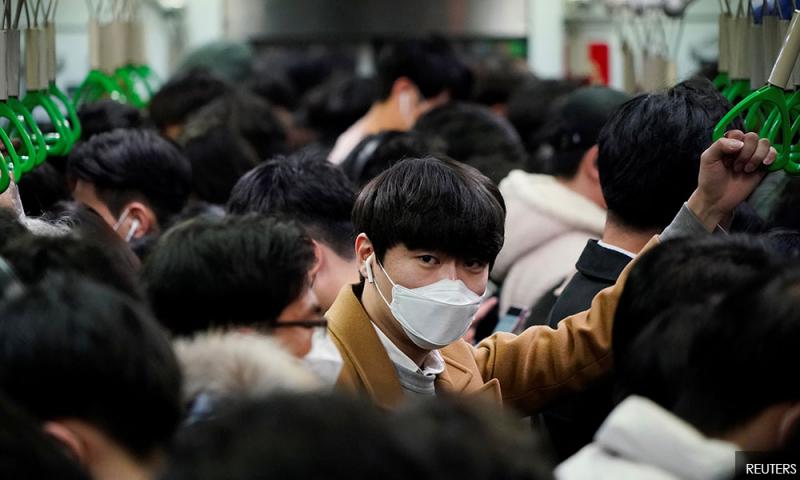Across Asia, countries race to boost face mask supplies
At a face mask factory just outside the South Korean capital of Seoul, workers are churning out 300,000 masks a day - and it's still not enough.
Last year the Icheon Production Centre CNTUS-Sungjin Co Ltd manufactured 30 million face masks. Amid this year's coronavirus outbreak, it has produced 19 million in January and February alone.
"We are assuming we will run out of materials in 20 days," said Kim Kyung-sig, who heads the centre.
Across Asia, the spread of the coronavirus has sparked a run on masks in the hardest-hit countries, as well as among those afraid that they could be next.
Some governments, like those in Australia and Singapore, have urged their citizens not to buy or wear the masks unless they are sick.
Other countries, like South Korea, have launched public information campaigns to encourage everyone to wear masks.
Kim estimates that manufacturers in South Korea can produce just around 10 million masks a day combined, in a country of 50 million people.
Conflicting messages have sowed confusion over how to protect against an epidemic that has claimed over 3,000 lives in China and spread to several dozen countries, with some experts saying wrong handling of masks could even increase infection risk.
Regardless of government policies, however, there has been widespread reports of masks selling out, with even some hospitals struggling to procure enough for their staff.
In South Korea - which has seen the largest outbreak outside of China, with 6,284 infections and 42 deaths - the government has imposed export restrictions on masks and urged factories to increase production.
Masks made at the CNTUS-Sungjin centre have increased in wholesale price from 650 won (US$0.55) to 1,100 won (US$0.93).
But Kim said the company wasn't reaping much more money because the factory had hired 130 temporary workers in addition to the usual 70 full-time staff, and was now operating its production lines all day, every day.
At one point after the virus began spreading in China, Chinese businessmen came to the factory and offered 5 billion won (US$4.2 million) for every face mask they had, but the deal didn't happen, Kim said.
Kim Jae-yong, a 43-year-old facility operator at the factory, said he has been working 12 hour shifts every day of the week.
"Every morning when I go to work, it reminds me of how important my job is to the direct safety and survival of the South Korean people," he said.
Other countries are also racing to increase mask supplies.
On Tuesday the government in Thailand approved 225 million baht to produce 50 million cloth masks within 10 days.
And Singapore has said it is looking to develop its local manufacturing of masks as other countries such as Taiwan banned the exports of masks.
Government crackdowns
Under a new policy going into effect on Monday, people in South Korea will be able to buy two masks per week on certain days of the week based on their birth years.
In China, the country's supreme court recently released guidelines saying that any disruptive hoarding or hiking of prices of masks, protection suits, disinfectants and other medical supplies could constitute a crime.
Authorities in Thailand, meanwhile, have filed at least 51 criminal cases against shops accused of selling masks at inflated prices, and have placed distribution of newly manufactured masks under the Commerce Ministry.
Indonesian police say they have arrested 25 people for hoarding masks and hand sanitizers.
When the first cases of coronavirus emerged in Singapore in mid-January, panic buying of masks and hand sanitizers led the government to ration masks.
Japanese Prime Minister Shinzo Abe said on Thursday the government there will prohibit mask resales.
Fourteen packages, containing a total of 620 masks, were on offer on Yahoo Japan's auction site on Friday, for example, with the highest bid standing at 1,001,000 yen (US$9,444).
Yahoo Japan said on Wednesday it planned to ban auction-style sales of surgical masks from March 14, while allowing sellers to offer masks at fixed prices.
- Reuters
RM12.50 / month
- Unlimited access to award-winning journalism
- Comment and share your opinions on all our articles
- Gift interesting stories to your friends
- Tax deductable

 Reuters
Reuters